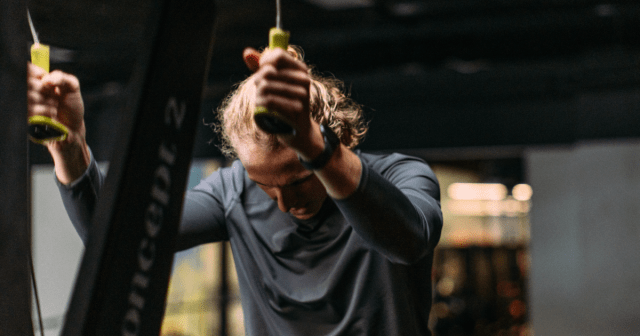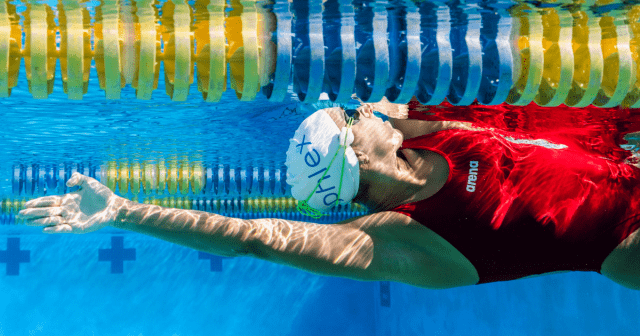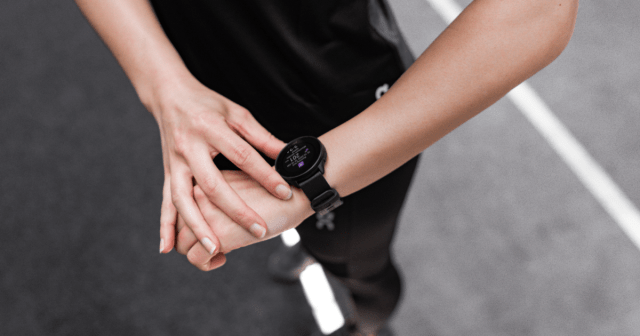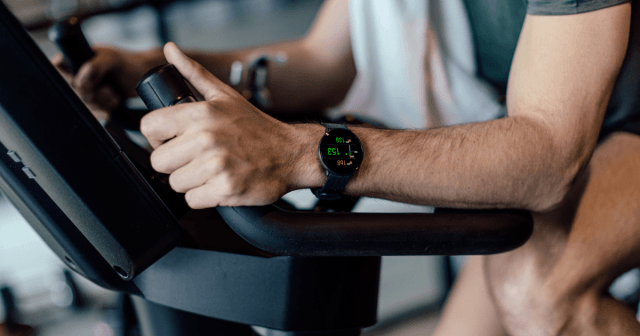Water makes up approximately 45–70% of our total body mass and the water balance of our our body plays an important role in the vast majority of metabolic and physiological functions. So, water is critical, but the question is: How much water should you drink a day?
As a ground rule, we should all aim to consume 2 liters of water every day, but as so many other things that have to do with our well-being, this, too, is individual and depends on your physiological make-up, activity level and environmental conditions.
Why Do you Need To drink Water When You Exercise?
During physical activity, your metabolic rate increases and the body is able to use only approximately 25% of energy to produce external movement. The remaining 75% of energy is dissipated as heat because the human body works very hard to maintain a constant internal environment. When the body recognizes an increase in core temperature during physical activity, it reacts accordingly, dissipating some of this heat.
When the body senses a rise in core temperature, one of the responses to protect against overheating is an increase in sweat rate as sweating allows the heat to evaporate into the environment and thus, helps to the body to control the rise in body temperature.
If you exercise without drinking enough to replace the fluid you lose through sweating, you may find yourself dehydrated, which may put a stop to your workout session sooner than you had planned.
How to tell if you’re dehydrated?
Dehydration has been shown to cause an increase in heart rate, an increase in core body temperature and a significant decline in cardiac output (the amount of blood pumped by the heart around the body in one minute). Obviously, this can affect your performance negatively.
If fluid losses continue without the consumption of extra fluid a state of dehydration may occur.
NATA (National Athletic Trainers’ Association) recommends the following:
“Fluid replacement should approximate sweat and urine losses and at least maintain hydration at less than 2% body weight reduction.”
A simple way to tell if you’re dehydrated is urine colour – a light colour means hydrated and dark implies dehydrated, signaling that you may need to consume extra fluids.
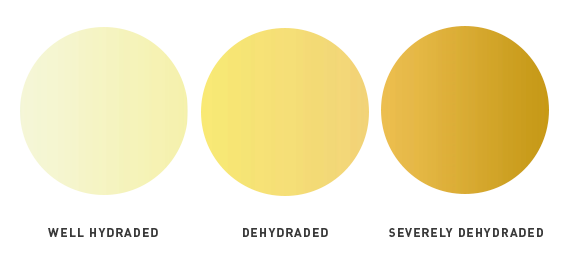
How much water should you drink before exercise?
So, how can you make sure you drink enough water before, during and after exercise to avoid dehydration?
First of all, it’s important that you start exercising in a hydrated state. Regular exercise, or neglecting to drink sufficiently throughout the day, may cause a fluid deficit and therefore could negatively affect your next training session.
To make sure you’re hydrated before exercise:
- Aim to consume 2 liters of water every day, especially if you exercise regularly – physical activity increases the need for extra fluids.
- Drink little and often in the hours before exercise and avoid consuming large volumes in one go.
- Monitor your hydration status using the above pee chart to ensure you’re properly hydrated when you start your workout.
HOW MUCH WATER SHOULD YOU DRINK during EXERCISE?
If your training session or race lasts longer than 30–40 minutes, a number of factors may contribute to fatigue, including a decline in fluid volume and an increase in body temperature. That’s why consuming fluids during exercise is an important strategy to prevent fatigue and to be able to keep going.
Similarly to pre-exercise, aim to consume fluids little and often avoiding large quantities in one go.
That doesn’t mean you should go crazy with the fluid – just listen to your body during exercise and drink to thirst. Depending on the type of exercise you’re doing, make every effort to have water available during exercise.
In addition to water, consuming fluids that contain electrolytes may prove to be beneficial during exercise. That’s because when we sweat, we lose electrolytes that play a crucial role in preserving the body’s balance and safeguarding correct cellular function. Sodium, one of these electrolytes, promotes water and sugar uptake, helping to preserve the drive to drink as well as fluid volume.
How much of those electrolytes we lose is, again, individual, and depends on the composition of our sweat and our individual sweat rate, which are affected by environmental conditions, our individual physiological make-up and the intensity of exercise, as well as natural variation over time.
HOW MUCH WATER SHOULD YOU DRINK After EXERCISE?
Rehydration after exercise is important for recovery but how exactly can you determine how much water you should drink after working out?
Key considerations for rehydration after exercise are the quantity of fluids and its composition:
- Aim to consume 150% of sweat lost after exercise to ensure effective rehydration.
- This can be calculated using a simple body weight measurement: for every kg of body weight lost during exercise that equates to 1 liter of fluid.
For example, if you lose 1kg of your body mass during exercise, you’ll need to consume 1.5L of fluid in the hours after exercise to rehydrate back to pre-exercise resting levels.
To sum it up (and bottoms up)
To wrap up the key considerations in staying hydrated in general and especially before, during and after exercise:
1. DRINK Enough Every day
This should be an important consideration every day regardless of your activity level or environmental conditions. As a baseline, aim to drink 2 liters of water every day – and remember that food contains water, too.
2. When you exercise
Make sure you start your workout sessions well-hydrated. Drink little and often in the hours before exercise and use urine colour as a guide.
During exercise, consume fluids little and often – avoid consuming large quantities in one go. Fluids with sodium will promote water and sugar uptake and help to maintain the drive to drink.
Remember to rehydrate after exercise and aim to consume 150% of sweat lost to ensure effective rehydration.
If you liked this post, don’t forget to share so that others can find it, too.
Or give it a thumbs up!
I like this article
Please note that the information provided in the Polar Blog articles cannot replace individual advice from health professionals. Please consult your physician before starting a new fitness program.


